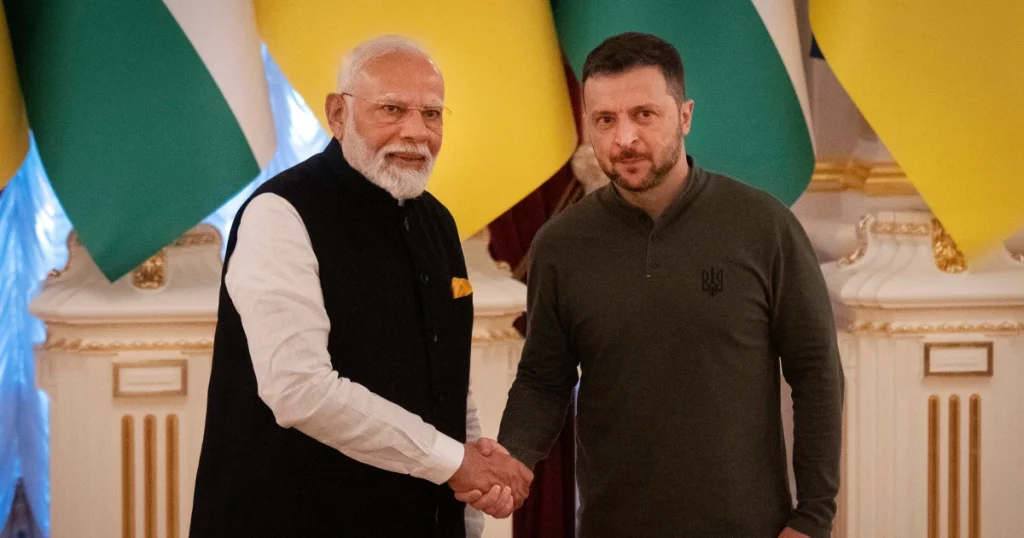Prime Minister Narendra Modi’s visit to war-ravaged Ukraine, about six weeks after his visit to Russia came under severe flak from some quarters in the US-led West, seen as it is by many as a balancing act. The nine-hour tour to Ukraine, the first by an Indian Prime Minister since 1991 when the country became independent, came at a time as its war against Russian aggression has reached a 30-month milestone and the tide seems to be turning in favour of Kyiv at this juncture. Both the visits, to Moscow and Kyiv, couldn’t have been more illtimed. While PM Modi’s visit to Russia had coincided with a horrific Russian strike on a children’s hospital in Kyiv that killed many, his Ukraine tour concurred with Ukraine’s surprise offensive in the Kursk region of Russia. This particular incursion is seen by many military specialists as a turning point in that war.
The visit is also perceived by some quarters as a damage control exercise given that ever since the war began, India has sided with Russia, be it in the form of the country’s abstention on the UN resolutions condemning the Russian aggression or the buying of Russian oil and weapons despite Western embargoes. Modi’s remarks at Kyiv, “I have come with a message of peace…I want to assure you and the entire global community that India is committed to respecting the sovereignty and territorial integrity (of states) and it is of utmost importance to us,” seemed to be diplomatic hyperbole. Moreover, the comments were a reiteration of the PM’s advice to Russian President Vladimir Putin that “now is not the time for war.” The comments anyways went unheeded by Putin as is evident from Russia’s continued aggression on the war front. If at all there is a peace deal between the warring countries in future, it is almost certain that India would have no role to play in it. This was made amply clear by Ukraine President Volodymyr Zelenskyy when he said: “I told Prime Minister Modi that we could have the Global Peace Summit in India. It’s a big country, it’s a great democracy – the largest one,” but added that it would not be possible to host the summit in a country that has not joined the communiqué of the last peace summit. India had attended the previous edition of the summit held in June at Lucerne, Switzerland, but refrained from associating itself with the communiqué that emerged from the deliberations. India’s policy of non-alignment had been continuing since the era of Pandit Jawaharlal Nehru. Then it was considered an appropriate policy as the newly independent nation had to take care of its own interests rather than getting itself mired in the conflicts involving the two superpowers of that time – the US and the Soviet Union.
However, times have changed. In the present times, staying neutral means one can be sure of not getting the support of either side. As they say, someone trying to be everyone’s friend is no one’s friend. In another context, no one knows whether India will get help from the US or Russia in the event of a conflict with China. Geopolitics aside, there is an ethical dimension to the problem of neutrality. As aptly put by anti-apartheid and rights activist Desmond Tutu: “If you are neutral in situations of injustice, you have chosen the side of the oppressor.”
